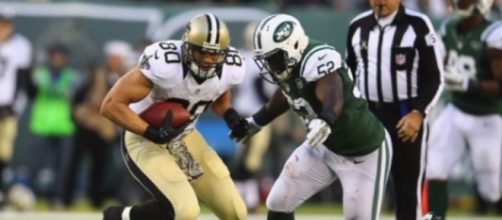David Harris does not need to familiarize himself with a new division when he embarks on the next chapter of his NFL career. In fact, he'll recognize many of his opponents, including one more intimately than any other. The veteran linebacker ended his brief foray into free agency by signing with the New England Patriots on Wednesday, thus ending the first movement of his career and continuing a trend of raiding rivals perpetrated by the Super Bowl champions this offseason.
David Harris on the move
According to a report from ESPN's Adam Schefter, Harris signed a two-year deal with the Patriots on Tuesday.
He was released by the New York Jets two weeks ago as the team decided to ramp up their rebuilding plans, quickly dropping wide receiver Eric Decker as well. He was the second most prolific tackler in the history of the franchise, playing for the team over the last 10 seasons and earning a reputation as one of the most popular players in the organization, both in the locker room and courtesy of the fans.
Now, he'll move on to New England, where he could play an immediate role. The Patriots have many linebacker questions outside of the re-signed Dont'a Hightower, questions that have been answered temporarily by the arrival of Harris. He may not be a tackle machine anymore, but he can still be a leader on a team and can still track the ball; his role for the defending NFL champions should become clear quickly.
Patriots poach another rival
Stealing Harris away from the Jets is not a new mentality for the Patriots. Over the course of this offseason, they have had a blast signing away divisional rivals, particularly from the Buffalo Bills, who have coughed up both running back Mike Gillislee and cornerback Stephon Gilmore this spring. The team has a particular history with the Jets, who have seen players, prospects, and even coaches bolt for the drastically more successful squad.
The practice of the Patriots has two effects. The first is one of transactions and skills: New England is getting better on the field at the expense of their rivals, who are getting worse. But there's also a mental component to the ploy, which demoralizes teams that have a strong connection to a player, only to see them end up elsewhere.
It makes teams feel inferior and probably has some players seeing a greener grass on the other side. For Harris, a Super Bowl title could be his reward for the way the Jets treated him on the way out.


